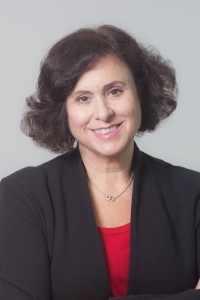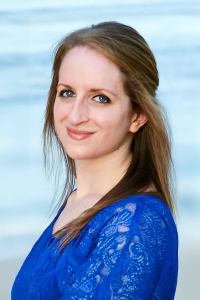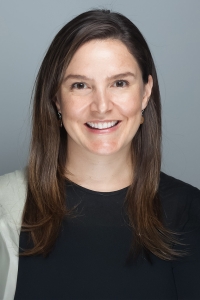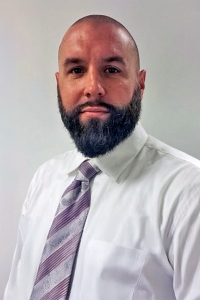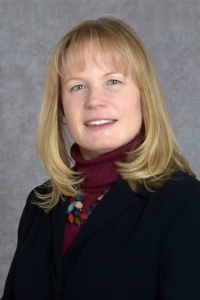Overview
The mission of this research area is to develop innovative treatment interventions to ameliorate the personal suffering and negative public health consequences of substance use disorders. Our faculty are dedicated to conducting a broad range of translational research, disseminating and implementing evidence-based interventions within the Columbia community and throughout the country, and providing state-of-the-art training to the next generation of addiction investigators. As one of the leading addiction psychiatry programs in the nation (and routinely in the top five university drug and alcohol abuse programs as ranked by U.S. World and News Report), we are at the forefront of addressing the critical addiction challenges facing New York City, New York state, and the nation.
Led by Frances Levin, MD, Substance Use Disorders has an administrative structure consisting of an executive committee (Drs. Foltin, Evans, Nunes, Comer, Haney, Martinez, and Bisaga), and a senior administrator (Mr. David Hurst). The division has had continuous NIH and industry funding for nearly 30 years, including 37 active federal grants and subawards, training awards, and industry contracts. The area is comprised of 30 faculty members.
The main areas of research and research training include: the university-wide CHOSEN Center, Preclinical and Laboratory Research Programs, National Drug Abuse Clinical Trials Network, Substance Treatment and Research Service and Education, and Training. Developing areas include: 1) Device-Based Diagnostics and Interventions, 2) Enhanced Clinical Services, 3) Substance Use Data Science, 4) the Neuromodulation Intervention Core, and 5) Implementation Science and Quality of Care.
Goals
- To pursue novel pharmacologic interventions for substance use disorders. Novel medications can be evaluated across the translational spectrum from preclinical work in non-human primates to human laboratory proof of concept and safety studies to clinical trials and, finally, implementation.
- To develop partnerships with pharmaceutical companies and basic scientists to develop novel compounds that may have promise for substance use disorders
- To expand understanding of the neurobiological correlates of substance use disorders and treatment mechanisms via neuroimaging and other novel approaches
- To explore device-based treatments of substance use disorders and other digital therapeutics, including opportunities available via SBIR funding mechanisms or industry-supported funding
- To expand and improve substance use disorder treatment and training within the Department of Psychiatry and Columbia University Irving Medical Center (CUIMC)
- To increase national training initiatives to encourage implementation of evidence-based treatments
- To promote research in social determinants of health associated with addiction, addressing health and racial inequities
- To grow new collaborative research within the Department of Psychiatry and CUIMC
- To expand our national influence on policy initiatives critical to the treatment of substance use disorders
Current Research
Of the area’s 48 funded grants, over 80% are funded by NIH. Included in this are 7 K awards (both junior and senior) and 2 UG3/UH3 mechanisms. Our research encompasses a wide spectrum of study methods and designs including preclinical research, human laboratory research, genetics, neuroimaging, and randomized clinical trials. In most of these areas, we have ongoing research with the major drugs of abuse including opioids, cannabis, cocaine, and alcohol. In addition to traditional research studies, an important aspect of our area is training and implementation science. With respect to training, Dr. Levin has a NIDA-funded T32 Fellowship primarily to train physicians to conduct clinical addiction research and Drs. Campbell and Hien have an R25 to train racial/ethnic minorities in translational addiction research. Lastly, our group is currently collaborating on several high-profile, national SAMHSA-funded initiatives to provide training and technical assistance to medical and allied health professionals throughout the United States, with an emphasis on medication-assisted treatment for substance use disorders, and, in particular, opioid use disorders.
Programs, Centers, Laboratories
The goal of CHOSEN (The Columbia Center for Healing of Opioid and Other Substance Use Disorders: Enhancing Intervention Development and Implementation) is to foster cross-disciplinary collaboration across the entire university and reduce the negative health consequence caused by opioid and other substance use disorders. Integral to this mission is to promote research in social determinants of health associated with addiction and address health and racial inequities. Working across disciplines and departments, CHOSEN is committed to foster the next generation of addiction scientists. The senior leadership of CHOSEN consists of a partnership of the Columbia School of Social Work, the Division on Substance Use Disorders at CUIMC/NYSPI, and the Irving Institute for Clinical and Translational Research. Over 45 faculty affiliates and 13 departments/schools of Columbia University and engaged in the Center’s activities.
Visit CHOSEN
Funded by the Office of Alcoholism and Substance Abuse Services (OASAS) and directed by Dr. Nasir Naqvi, this clinic offers free, intensive, evidence-based outpatient treatment for gambling addiction and concerned significant others.
Visit the Gambling Disorders Clinic
Under the direction of Dr. Edward Nunes, the Greater NY Research Node of the NIDA-funded CTN has been continuously funded since 2000. In addition to contributing individual sites to national multi-site trials, the Node has led four large multi-site effectiveness trials, including the first multisite trial of a behavioral treatment for combined PTSD and substance use disorder, the first multisite trial of a web-delivered behavioral intervention for substance use disorders, and the first comparative effectiveness trial of buprenorphine vs. injection naltrexone for treatment of opioid use disorder. A data analytic core serves as a resource to the Division supporting both trainees and faculty in conducting secondary analyses of CTN datasets.
Visit Clinical Trials Network(link is external and opens in a new window)
Research conducted at the Substance Use Research Center focuses on behavioral and biological factors affecting 1) vulnerability to drug use, 2) patterns of drug use, and 3) the response to putative treatment interventions with respect to cannabis, opioid, cocaine, and alcohol use and misuse.
- The Women’s Research Center (Dr. Suzette Evans) places these research questions in the context of sex differences that affect alcohol and cannabis misuse. Currently, Drs. Evans and Bedi have a grant to examine neurobiological mechanisms, using fMRI, of decision making in cannabis smokers.
- The focus of the Cannabis Research Laboratory (Dr. Margaret Haney) is to conduct placebo-controlled, human laboratory studies to develop novel treatments for cannabis use disorder by assessing medication effects on cannabis intoxication, withdrawal, and relapse, and to test the potential therapeutic effects of cannabinoids.
- The Cocaine Research Laboratory (Dr. Richard Foltin) is conducting a series of studies examining the relationship between impulsivity and patterns of cocaine use, impulsivity and treatment outcome, and the neural correlates of decision making in cocaine users.
- Research conducted in the Opioid Research Laboratory (Dr. Sandra Comer) targets approaches for training people who use opioids on how to respond to an overdose emergency, tests novel medication approaches for treating co-morbid opioid and alcohol use disorders, evaluates the abuse potential of novel pain medications, and uses pharmacogenetics to improve treatment outcomes. Preclinical research with laboratory animals focuses on investigating the mechanisms of the reinforcing effects of drugs in laboratory animals.
The Division supports a host of clinical treatment research studies targeting tobacco, alcohol, cannabis, and opioid use disorders at STARS. Dr. John Mariani, the STARS Medical Director, coordinates recruitment and clinical oversight for this consortium of eight Principal Investigators. Our Division has had long-standing expertise and interest in improving induction onto medication-assisted treatments and enhancing medication adherence for opioid use disorders. Novel interventions currently being studied include innovative medications for opioid and cannabis use disorders, translational studies combining fMRI with clinical methods to understand the neural mechanisms by which behavioral treatments for alcohol use disorder change behavior (Dr. Naqvi), and transcranial magnetic stimulation (TMS) for chronic pain (Dr .Blevins). We have expanded our interests to examine predictors of treatment outcome (Dr. Luo) and interventions to address the increase use of highly potent synthetic opioids (e.g. fentanyl; Drs. Levin and Mariani) Industry trials include assessing the utility of extended release formulations of buprenorphine to enhance adherence, efficacy and reduce diversion (Drs. Levin and Mariani). Notably, our Division was one of the first groups to conduct outpatient pharmacologic treatment trials targeting cannabis use disorders. Another area of developing interest is harnessing technology, including ecological momentary assessments using smart phones, to assess outcome measures relevant to substance use disorder treatment trials (Dr. Brezing, Mariani, and Levin).
Visit STARS

